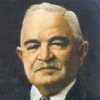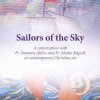Published by:
Serbica Americana
in collaboration with:
Serbian Western American Diocese, Los Angeles, California
Edited by:
Bishop Maxim (Vasiljevic)
Contributors:
Nenad Vukicevic, Dragana Masic, Milina Jovanovic, Vladimir Acimovic, Fr Bratislav Krsic
Serbica Americana Foundation:
Nenad Djordjevic, Ronald Radakovich, Nenad Vukicevic
Web site:
Vladimir Acimovic
Graphic design:
Denis Vikic
© 2012-2017 All Rights Reserved




